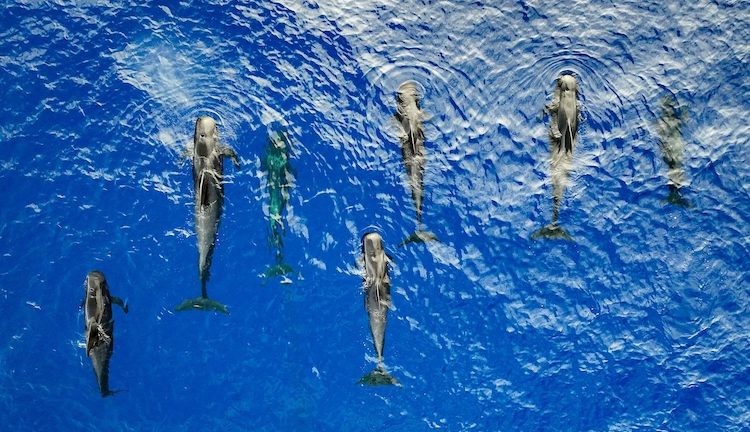By Reinhard Jacobsen
BRUSSELS | 3 March 2025 (IDN) — Greenpeace deems the second anniversary of the Global Ocean Treaty being agreed on March 4 “a victory for multilateralism and a chance to protect the ocean worldwide”. Bringing it to life as soon as possible is the only way to keep the 30×30 ocean target within reach, accentuates a media release.
As international cooperation is shaken, Greenpeace calls on governments to react by focusing on where they can rebuild multilateralism that serves the common good: protecting the global ocean.
To enter into force, the Treaty needs to be ratified by 60 countries, but to this date only 18 countries have: Palau, Chile, Belize, Seychelles, Monaco, Mauritius, Federated States of Micronesia, Cuba, Maldives, Singapore, Bangladesh, Barbados, Timor Leste, Panama, St. Lucia, Spain, France and Malawi.
Latvia, Romania and Slovenia have ratified but not deposited it at the UN yet.
Lukas Meus, global oceans campaigner based at Greenpeace Austria, said: “We face a moment where nationalist politicians are trying to tear down multilateralism and expand ‘extractivism’ without limits. The Global Ocean Treaty is a chance to reset ocean governance towards conservation and away from destruction. It can set the model of what multilateralism should look like: cantering Indigenous Peoples and local communities, rooted in science, accountable to the public good”.
Need for Governments’ support
Governments must support the Treaty by ratifying it and encouraging other states to do the same, so that it can enter into force and rapidly deliver a high seas network of ocean sanctuaries, says the media release.
“Until the Treaty enters into force, the management of our global oceans is very fragmented. There is no legal global instrument that allows for the creation of sanctuaries in international waters.”
Only the Antarctic Ocean Commission (CCAMLR) and certain regional seas conventions (such as OSPAR), can designate marine protected areas but they have limitations to the geographic scope; decisions only apply to those governments who are party to the conventions; and, more importantly, in their ability to implement protection — leaving marine life with little protection against all the threats they are facing, like industrial fishing.
To this day, less than 1% of the high seas — the largest habitat on Earth, comprising 64% of the world’s ocean — is fully or highly protected from human activities.
Greenpeace wants the UN Ocean Conference to show a clear path for 60 countries to ratify the Global Ocean Treaty and a critical mass of countries to publicly support a moratorium on deep sea mining ahead of the crucial July 2025 International Seabed Authority meeting.
32 countries are now supporting a moratorium against deep sea mining: Palau, Vanuatu, Spain, Fiji, New Zealand, Samoa, France, Chile, Germany, Costa Rica, Panama, Ecuador, Federated States of Micronesia, Dominican Republic, Switzerland, Sweden, Ireland, Canada, Brazil, Finland, Portugal, Monaco, United Kingdom, Mexico, Denmark, Greece, Peru, Malta, Honduras, Tuvalu, Guatemala, Austria.
“UNOC is a unique chance for Governments to show global leadership for ocean protection. They must use this opportunity and ratify the treaty before arriving in Nice,” adds Meus.
He is referring to the 2025 UN Ocean Conference United Nations Conference to Support the Implementation of Sustainable Development Goal 14: Conserve and sustainably use the oceans, seas and marine resources for sustainable development (the 2025 UN Ocean Conference) will be held in Nice, France, from 9 to 13 June 2025, co-hosted by France and Costa Rica. The overarching theme of the Conference is “Accelerating action and mobilizing all actors to conserve and sustainably use the ocean”. [IDN-InDepthNews]
Image: Short finned pilot whales seen during the journey to the Sargasso Sea. The Arctic Sunrise is en route to the Sargasso Sea. The Sargasso is one of Greenpeace’s three priority sites for protection under the new Global Ocean Treaty. Credit: Greenpeace UK.


